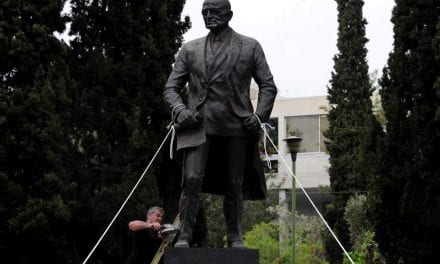By Natalie Malek – The Washington Times –
Known as Asena (“She-wolf”) to her supporters, Meral Aksener is proving a dogged critic of Turkey’s longtime leader Recep Tayyip Erdogan in this month’s presidential election and a crucial asset for the unexpectedly potent anti-government forces seeking to drive him from power.
A seasoned politician and self-proclaimed devout Muslim, the 61-year-old former vice speaker of parliament has emerged as a primary challenger to Mr. Erdogan’s 15-year rule ahead of June 24’s national elections. If elected, she promises to restore democracy and mend a broken judiciary system, saying she has aligned her political agenda with the nation’s founding principles.
Currently, she is third in the polls, with President Erdogan struggling to win the outright majority that would avoid a politically perilous run-off vote.
She launched her campaign for the presidency just moments after Mr. Erdogan called for the snap election in April, and was a key architect of a pledge by Turkey’s traditionally feuding opposition parties to unite around a single candidate if Mr. Erdogan is forced into the run-off.
She has proven to be a potent weapon for the anti-Erdogan camp, with a fierce campaigning style and an appeal to many of the same nationalist voters who form the president’s electoral base. As the only major female candidate in the field, she has also run well in the polls with women and younger voters.
“Democracy is under threat,” Ms. Aksener declared at a recent rally in Ankara. She has decided to run under a new party — the “Good” party. She founded it herself after Mr. Erdogan first floated the idea for a change to Turkey’s constitution to focus far more political power in the office of the president.
Turkish political analysts say Ms. Aksener has been able to gain traction because she encompasses moderate political ideologies, a stance that has been underrepresented in Turkey in recent years.
“The country’s political center used to be represented, but Erdogan has veered right towards to nationalist movement, creating a vacuum where the center used to be. … [Ms. Aksener] aspires to fill that vacuum,” said Kemal Kirisci, an expert in Turkish foreign policy and migration studies at the Brookings Institution, on Tuesday.
Ms. Aksener’s new Good Party has formed an alliance with three other opposition groups — the center-left Republican People’s Party (CHP), the Islamist Saadet Party (SP), and the Democratic Party (DP) — in an effort to oust Mr. Erdogan. While the parties represent span the ideological spectrum, they have so far stuck to their plan to unite against the president. The alliance also says it will return Turkey to a British-style parliamentary system of government if they win.
Some election-watchers believe that regardless of the outcome, the campaign has exposed political weaknesses for Mr. Erdogan in a vote that was supposed to cement his power.
“I think win or lose, these elections have set in motion a force that will overtake Erdogan sooner or later,” said Selim Sazak, a doctoral candidate in international relations at Brown University.
Mr. Erdogan has had an at-times strained relationship with the Trump administration, in particular because of clashing agendas in the Syrian civil war. Ankara’s relations with the European Union have also been rocky, as Brussels has stepped up its criticism of the increasingly authoritarian Turkish president.
Ms. Aksener has pledged to improve relations with the West, revive Turkey’s moribund bid to join the European Union, and try to restore a sense of normalcy after the tense and combative Erdogan years.
“The state of emergency will be lifted the day after I’m elected,” she told supporters on a radio broadcast last month, adding, “I am the only person [Mr. Erdogan is afraid of.”


















